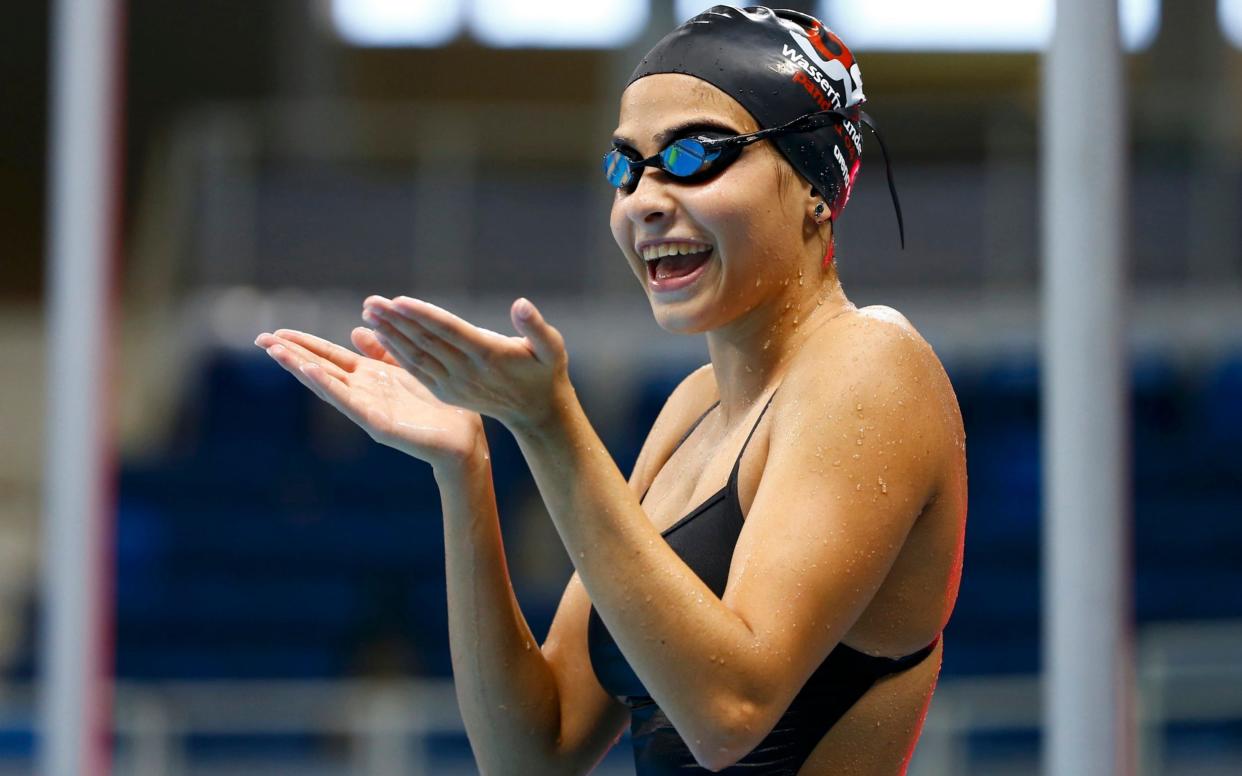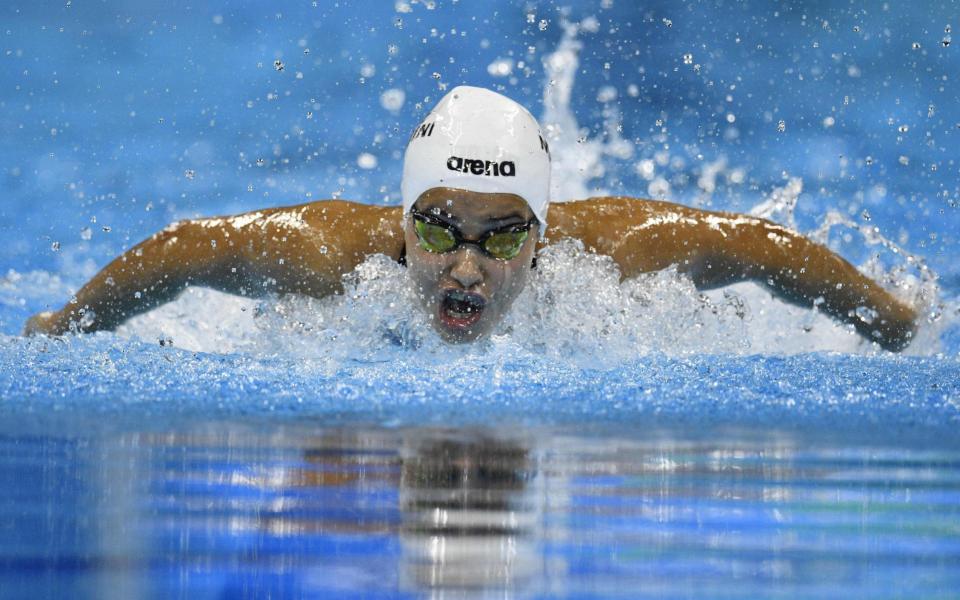Yusra Mardini interview: Syrian refugee aiming for Tokyo and another chapter in incredible story

Yusra Mardini's Olympic dream was almost over before it began. A place in the inaugural refugee team was hers for the taking at the Rio 2016 Games, but such was her resentment towards her migrant roots that she was inclined to reject it.
“I told my coach and I told my parents that I didn’t want people to pity me. I wanted to earn my place,” recalls Mardini. “I told them, ‘I don’t want to go as a refugee!’ The word ‘refugee’ is really heavy on me.”
Ultimately, the lure of a place on sport's greatest stage was too tempting to pass up. And so it was that she found herself on the starting blocks for the 100m butterfly heats in Brazil, an 18-year-old sporting a white swimming cap emblazoned with the Olympic rings, receiving a standing ovation from the crowd simply for being there.
It was a year after she had helped guide a sinking dinghy carrying 20 refugees to safety in the perilous waters of the Mediterranean. Mardini and her sister, Sara, were among the group trying to flee the Syrian war when the flimsy vessel started filling with water minutes into their journey off the Turkish coast. The pair jumped overboard and dragged the dinghy for more than three hours until they reached the Greek Island of Lesbos. From there, they endured a merciless trek through Europe before reaching Berlin, where she has lived ever since.
At Rio, Mardini became an instant hit after winning her opening heat, finishing over a second faster than her nearest rival. Given her initial reservations over becoming an Olympian, it is little wonder that Mardini’s blockbuster narrative is being made into a film by English director Stephen Daldry.
She took it upon herself to embrace the word ‘refugee’ and challenge its negative connotations. “We were not poor [in Syria],” she eagerly points out. “We didn’t live in a desert - we had iPhones. A lot of people have a really bad idea of what a refugee is. Now, if someone comes and says anything about refugees, I am the first defender. I tell them we are normal people.”

Stamping out the deep-rooted misconceptions which often fuel society's lowly view of refugees is now one of her key priorities. They have been swirling around these shores of late: in light of the increase in migrants crossing the Dover Strait this month, a recent YouGov survey found that nearly half of the British public have little or no sympathy for asylum seekers crossing the Channel from France.
It was Mardini’s Rio experience which changed her philosophy about refugees and their unenviable tendency to be pitied. “The minute I entered the stadium, everything changed,” she recalls. “The minute I saw thousands of people standing up for this team and respecting us, it changed my whole way of thinking.
“I thought, ‘Do you know what? I am a refugee and I’m proud of it. There’s nothing to be ashamed of.' To be honest, I had the strength - that some men didn’t even have to do what I did - so I was like, I’m not going to be ashamed of this, I’m going to be happy.”
Belting out Rihanna songs to improve her English was a regular occurrence for Mardini and her peers in school. It served her well, because she is word-perfect during our Zoom call and, as she avidly starts reciting slang like BRB (be right back), she is briefly transported back to a happy place.
She has since grown accustomed to speaking in more formal settings, having addressed the United Nations General Assembly, met Pope Francis and Barack Obama and carried out ambassadorial work for the UN Refugee Agency in light of her Olympic stardom.
The 22-year-old is eyeing the rescheduled Tokyo Games next year, where her happiness of finding the perfect equilibrium between Olympian and refugee will eclipse the weight of an Olympic gold medal. She is now firmly anchored to her refugee roots, which have shaped a level of competitiveness to which few other Olympians would be able to relate.
“My mind is probably 50 years old, but I’m only 22,” says Mardini. “We’ve been through a hell of a life, not only the trip, but life in Syria and everything we saw. For me, winning gold, at Tokyo at least, is impossible.
“But I will always dream about it and I will always work as hard as I can for it. I’m giving everything I have and I’m training as hard as I can. My aim is first to qualify for Tokyo, swim a new personal best and just see where this road will take me.”
Airbnb, the IOC, and the IPC brought the spirit of the Olympics and Palaympics online with a curated programme of activities hosted by athletes such as Tony Hawk, Naomi Osaka and Yusra Mardini.


